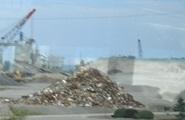Market Data

January 7, 2015
Schnitzer Earnings Take Hit From Scrap Pricing
Written by Sandy Williams
Low scrap prices and declining exports took a toll on earnings results for Schnitzer Steel Industries. Export selling prices for ferrous scrap declined by $80 per ton, or 20 percent, while domestic prices dropped $60 per ton, or 15 percent. The declines were the steepest seen by Schnitzer since 2012.
The company reported a net loss of $2 million for first quarter 2015 in comparison to a profit of $6 million in the previous quarter and a net loss of $6 million a year ago. Revenue of $556 million was down 5 percent year over year and 20 percent from the preceding quarter. Steel manufacturing and auto part business reported improved revenues y/y, but both segments and metals recycling showed revenue losses compared to the previous quarter.
The Metals Recycling Business had stronger domestic sales volumes which partially offset the weaker export market. Domestic ferrous sale volume was up 3 percent y/y with 36 percent of sales going to North America, 32 percent to Europe, Africa and the Middle East, and 32 percent to Asia. Export volumes decreased by 7.8 percent. The top export destination for Schnitzer was Turkey, Egypt and Thailand. Adjusted operating income for the segment increased in first quarter due to productivity initiatives despite lower ferrous prices.
The Steel Manufacturing Business operating income of $6 million in first quarter benefited from higher average selling prices and an improved nonresidential construction market on the West Coast. Schnitzer steel mill utilization increased to 72 percent from 65 percent y/y.
Tamara Lundgren, President and Chief Executive Officer said in the earnings call that the export scrap recycling is a spread business. “We adjust prices for demand in connection with currency movement and in connection with volume.” Commenting on the increase in domestic business, Lundgren pointed to the flexibility of the Schnitzer business model that allows the company to adjust to domestic demand as the U.S. economy recovers. “We sell where demand is strongest and prices are most beneficial. Right now domestic market has a premium to export.”
Lundgren predicts infrastructure construction for the West Coast is likely to improve due to favorable political conditions in Washington.







